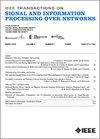拜占庭弹性分散资源分配的双域防御系统
IF 3
3区 计算机科学
Q2 ENGINEERING, ELECTRICAL & ELECTRONIC
IEEE Transactions on Signal and Information Processing over Networks
Pub Date : 2024-10-23
DOI:10.1109/TSIPN.2024.3485508
引用次数: 0
摘要
本文研究了存在拜占庭攻击时的分散资源分配问题。当未知数量的恶意代理向它们的邻居发送随机或精心制作的信息时,就会发生这种攻击,目的是阻止诚实的代理达成最优资源分配策略。我们用经典的拜占庭攻击模型来描述这些恶意行为,并提出了一类具有拜占庭抗性的分散式资源分配算法,该算法增强了双域防御功能。诚实的代理在每次迭代时都会收到来自其邻居的包含(可能是恶意的)对偶变量的信息,并利用稳健的聚合规则过滤这些信息。我们从理论上证明,只要稳健聚合规则设计得当,所提出的算法就能收敛到最优资源分配策略的邻域。我们还进行了数值实验来证实理论结果。本文章由计算机程序翻译,如有差异,请以英文原文为准。
Dual-Domain Defenses for Byzantine-Resilient Decentralized Resource Allocation
This paper investigates the problem of decentralized resource allocation in the presence of Byzantine attacks. Such attacks occur when an unknown number of malicious agents send random or carefully crafted messages to their neighbors, aiming to prevent the honest agents from reaching the optimal resource allocation strategy. We characterize these malicious behaviors with the classical Byzantine attacks model, and propose a class of Byzantine-resilient decentralized resource allocation algorithms augmented with dual-domain defenses. The honest agents receive messages containing the (possibly malicious) dual variables from their neighbors at each iteration, and filter these messages with robust aggregation rules. Theoretically, we prove that the proposed algorithms can converge to neighborhoods of the optimal resource allocation strategy, given that the robust aggregation rules are properly designed. Numerical experiments are conducted to corroborate the theoretical results.
求助全文
通过发布文献求助,成功后即可免费获取论文全文。
去求助
来源期刊

IEEE Transactions on Signal and Information Processing over Networks
Computer Science-Computer Networks and Communications
CiteScore
5.80
自引率
12.50%
发文量
56
期刊介绍:
The IEEE Transactions on Signal and Information Processing over Networks publishes high-quality papers that extend the classical notions of processing of signals defined over vector spaces (e.g. time and space) to processing of signals and information (data) defined over networks, potentially dynamically varying. In signal processing over networks, the topology of the network may define structural relationships in the data, or may constrain processing of the data. Topics include distributed algorithms for filtering, detection, estimation, adaptation and learning, model selection, data fusion, and diffusion or evolution of information over such networks, and applications of distributed signal processing.
 求助内容:
求助内容: 应助结果提醒方式:
应助结果提醒方式:


